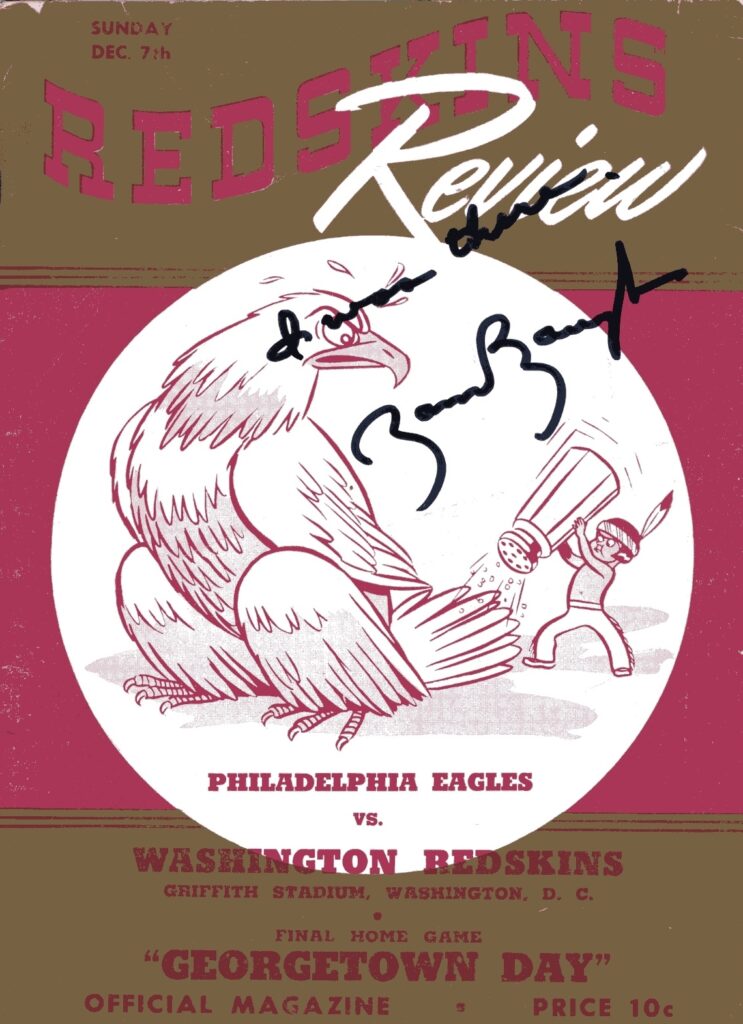It’s been called the most forgotten football game. When the Redskins defeated the Eagles, 20-14, at Griffith Stadium on Dec. 7, 1941, the game meant nothing to either team, both of which were out of the postseason hunt. But the day it was played, as President Franklin D. Roosevelt proclaimed, would live in infamy.
Around game time at 2 p.m. (8 a.m. PST), the Japanese bombed Pearl Harbor in Hawaii, the first time a foreign nation had attacked U.S. soil in nearly 130 years. Midway through the first quarter, the public address announcer began sending strange messages over the loud speaker, urging military officers, government officials and diplomats to leave the game and report to their offices in Washington, according to Washington Post columnist Shirley Povich, who was at the game:
“Admiral W.H.P. Bland is asked to report to his office at once!”
“The resident commissioner of the Philippines, Mr. Joaquim Eilzalde, is urged to report to his office immediately!”
“Joseph Umglumph of the Federal Bureau of Investigation is requested to report to the FBI office at once.”
“Capt. R.X. Fenn of the United States Army is asked to report to his office at once.”
As the announcements became more and more frequent, a curiosity grew among the 27,102 fans and players from both teams. Everyone was wondering what was happening but could only guess because Redskins management, which had learned about the Japanese attack through a telegraph message, refused to make an official announcement despite the horror of the moment and the inevitability of America going to war.
“I guess the Redskins didn’t announce it because they didn’t want to cause a panic,” said Clyde Shugart, a Redskin lineman at the time who turned 25 that day. “We sensed that something happened, and everybody in the stands realized there was something wrong. But we didn’t know what.”
When George Preston Marshall was asked to explain his decision for withholding the information, the Redskins’ entertainment-conscious owner said, “I didn’t want to divert the fans’ attention from the game.”
By the third quarter, almost every news photographer had left the stadium, as well as an estimated 3,000 spectators, and the game ended in almost complete silence. Redskins players reacted patriotically. That evening, a group of them protested the attack by marching on the Japanese embassy in Washington.
“We wanted to square the account if they were looking for a fistfight,” Shugart said.


